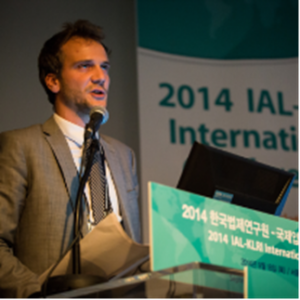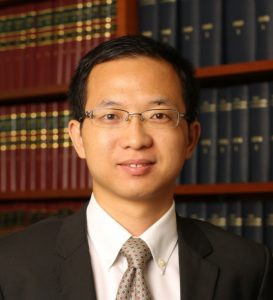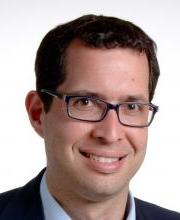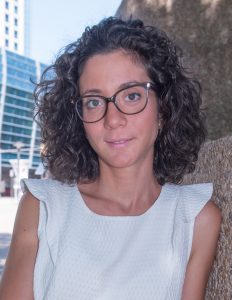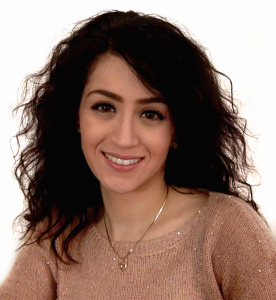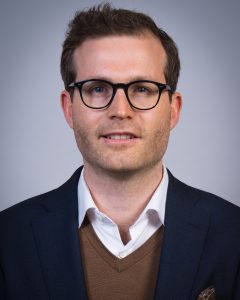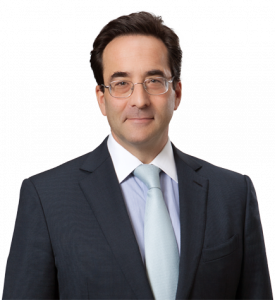
Richard Epstein
Director
Richard A. Epstein is the Director of the Classical Liberal Institute and the inaugural Laurence A. Tisch Professor of Law at NYU School of Law. Prior to his joining the faculty, he was a visiting law professor at NYU from 2007 through 2009. He has served as the Peter and Kirstin Bedford Senior Fellow at the Hoover Institution since 2000. Epstein is also the James Parker Hall Distinguished Service Professor of Law Emeritus and a senior lecturer at the University of Chicago. His initial law school appointment was at the University of Southern California from 1968 to 1972. Epstein received an LL.D., h.c. from the University of Ghent, 2003. He has been a member of the American Academy of Arts and Sciences since 1985 and has been a Senior Fellow of the Center for Clinical Medical Ethics at the University of Chicago Division of Biological Sciences, also since 1983. He served as editor of the Journal of Legal Studies from 1981 to 1991, and of the Journal of Law and Economics from 1991-2001. From 2001 to 2010 he was a director of the John M. Olin Program in Law and Economics at the University of Chicago.
His newest book is The Dubious Morality of Modern Administrative Law (Rowman & Littlefield Publishers 2020). His previous books include The Classical Liberal Constitution: The Uncertain Quest for Limited Government (Harvard 2014); Design for Liberty: Private Property, Public Administration and the Rule of Law (Harvard 2011); The Case Against the Employee Free Choice Act (Hoover 2009); Supreme Neglect: How to Revive the Constitutional Protection of Property Rights (Oxford 2008); Antitrust Decrees in Theory and Practice: Why Less is More (AEI 2007); Overdose: How Excessive Government Regulation Stifles Pharmaceutical Innovation (Yale University Press. 2006); How Progressives Rewrote the Constitution (Cato 2006); Cases and Materials on Torts (Aspen Law & Business; 8th ed. 2004); Skepticism and Freedom: A Modern Case for Classical Liberalism (University of Chicago, 2003); Torts (Aspen Law & Business 1999); Principles for a Free Society: Reconciling Individual Liberty with the Common Good (Perseus Books, 1998):Mortal Peril: Our Inalienable Rights to Health Care (Addison-Wesley, 1997); Simple Rules for a Complex World(Harvard, 1995); Bargaining With the State (Princeton, 1993); Forbidden Grounds: The Case Against Employment Discrimination Laws (Harvard , 1992); Takings: Private Property and the Power of Eminent Domain (Harvard, 1985); and Modern Products Liability Law (Greenwood Press, 1980). He has also edited (with Catherine M. Sharkey) Cases and Materials on the Law of Torts (10th edition 2012).
Epstein has written numerous articles on a wide range of legal and interdisciplinary subjects. He has taught courses in administrative law, antitrust law, civil procedure, communications, constitutional law, contracts, corporations, criminal law, criminal procedure, employment discrimination law, environmental law, food and drug law health law and policy, legal history, labor law, property, real estate development and finance, jurisprudence, labor law; land use planning, patents, individual, estate, partnership and corporate taxation, Roman Law; torts, water law and workers' compensation.
Epstein also writes a weekly legal column, the Libertarian, is a regular contributor to Ricochet, and writes occasionally for other web sites including Just Security, the ScotusBlog and PointofLaw at the Manhattan Institute.

Mario Rizzo
Co-Director
Mario Rizzo is the Co-Director of the Classical Liberal Institute and a Professor of Economics at NYU. He is also the Director of the Program on the Foundations of the Market Economy in the Department of Economics and the chairman of the Colloquium on Market Institutions and Economic Processes. He has been a law and economics fellow at Yale Law School and the University of Chicago Law School. He teaches a yearly seminar at NYU School of Law called “Classical Liberalism.” He is the author of many articles in economics and in law journals. His most recent books are Escaping Paternalism: Rationality, Behavioral Economics, and Public Policy (co-authored with Glen Whitman, Cambridge University Press 2020) and Austrian Economics Re-Examined: The Economics of Time and Ignorance (co-authored with Gerald P. O’Driscoll, Jr., Routledge 2014).
Professor Rizzo’s current research is focused on new or soft paternalism, behavioral economics, and the economic theory of rationality. He is completing a book on the subject.
His research is grounded on four fundamental premises: (1) the decentralization of knowledge in a complex society, such as ours, is important in the explanation of both economic and social phenomena; (2) human action should be understood in a contextual way -- both the individual and social context is needed to make sense of what people do and how they relate to one another; (3) these phenomena are, wherever possible, best viewed as processes in time; and (4) economic and social policies usually have important unintended consequences.

Bowman J. Heiden
Co-Chair, Technology, Innovation, and Intellectual Property Program
Co-Director, CIP – Center for Intellectual Property
UGOT | Chalmers | NTNU
Visiting Professor, School of Engineering
UC-Berkeley
Bowman Heiden is Executive Director of the Tusher Strategic Initiative for Technology Leadership at UC Berkeley and Co-Director of the Center for Intellectual Property at the University of Gothenburg. He co-chairs the Technology, Innovation, and Intellectual Property program at NYU Law’s Classical Liberal Institute and co-founded the Berkeley Deep Tech Innovation Lab, the Dynamic Competition Initiative, and ICM Global. With over 200 innovation projects tohis credit, his work bridges law, economics, and innovation policy. He holds degrees in engineering, technology management, and economics, and previously played professional basketball in Europe before focusing on innovation strategy and policy.

Adam Mossoff
Co-Chair, Technology, Innovation, and Intellectual Property Program
Adam Mossoff is Co-Chair of the Technology, Innovation, and Intellectual Property program at the Classical Liberal Institute. He is an expert on intellectual property law, and he has published extensively on intellectual property law and innovation policy. His scholarship has been relied on by the U.S. Supreme Court and by federal agencies, and he has been invited five times to testify before the U.S. Senate and the House of Representatives on intellectual property legislation. He has been invited to speak at the U.S. Patent & Trademark Office, the U.S. Department of Justice, the Smithsonian Institution, and the National Academy of Sciences, among other public and private institutions. He frequently files amicus briefs in intellectual property cases; he has filed more than 25 briefs since in the past several years. In addition to his academic articles and legal briefs, his writings on intellectual property policy have appeared in the Wall Street Journal, New York Times, Forbes, Washington Times, Newsweek, and in other media outlets. A selection of his academic and legal scholarship can be downloaded here.
Professor Mossoff teaches at the Antonin Scalia Law School at George Mason University. In addition to his positions at Scalia Law and at the Classical Liberal Institute, he is also Chair of the Intellectual Property Working Group of the Regulatory Transparency Project at the Federalist Society. He is a Senior Fellow and Chair of the Forum for Intellectual Property at the Hudson Institute, a Visiting Intellectual Property Fellow at the Heritage Foundation, and a member of the Board of Directors of the Center for Intellectual Property Understanding. He is also a member of the Intellectual Property Rights Advisory Committee of ANSI and he has served as Chair and Vice-Chair of the Intellectual Property Committee of the IEEE-USA.
Professor Mossoff began his academic career as a John M. Olin Fellow in Law at Northwestern University School of Law, and he has taught at Michigan State University College of Law, University of San Diego School of Law, and Washington & Lee University School of Law. He graduated with Honors from the University of Chicago Law School, where he was a research assistant to Professor Richard Epstein and was awarded a Bradley Governance Fellowship. He also holds an MA in Philosophy from Columbia University, and a BA with High Distinction and High Honors in Philosophy from the University of Michigan.

Robert Miller
Fellow, Co-Director, The Program on Organizations, Business, and Markets
Professor Miller is the Allison and Dorothy Rouse Chair in Law at the Antonin Scalia Law School at George Mason University. He is an elected member of the American Law Institute and a research member of the European Corporate Governance Institute, as well as an Adjunct Fellow at the Manhattan Institute and an Affiliated Scholar at the James Wilson Institute on Natural Rights and the American Founding. At the Classical Liberal Institute, he co-directs the Program on Organizations, Business and Markets.
Professor Miller’s research concerns corporate and securities law, the economic analysis of law, and the philosophy of law. His writings have been cited in commercial and corporate cases by federal and state courts in the United States, as well as courts in the United Kingdom and Canada. The Delaware courts have cited his works more than40 times. He has written on material adverse effect clauses, prohibitions by employers on insider trading by their employees, the valuation of businesses in Delaware appraisal proceedings, pricing anomalies in the market for corporate control, the history and development of Delaware corporate law, the fiduciary duties of corporate directors, Rule 10b-5 securities fraud in connection with business combination transactions, risk transfers in securitization transactions, corporate social responsibility and the ESG movement, and shareholder governance versus stakeholder governance. His articles have appeared in Business Lawyer, the Journal of Corporation Law, the European Journal of Law & Economics, the William & Mary Law Review, the Southern California Law Review, the Notre Dame Law Review, the Supreme Court Economic Review, the Cardozo Law Review, the Review of Banking and Financial Law, the Journal of Morality and Markets, and the Journal of Catholic Social Thought, among others. Professor Miller is also the co-author of a casebook on mergers and acquisitions published by Foundation Press. His articles and working papers are available on his SSRN page.
Before joining the faculty at George Mason University, Professor Miller was the F. Arnold Daum Chair in Corporate Finance and Law at the University of Iowa College of Law, where he also served as Associate Dean for Faculty Development. Before that, he was a Professor of Law at the Villanova University School of Law and the Associate Director of the Matthew J. Ryan Center for the Study of Free Institutions and the Public Good at Villanova University. He has been a Visiting Professor of Law at the University of Pennsylvania Law School, a Visiting Assistant Professor of Law at the Cardozo Law School, and an Olin Fellow in Law and Economics at the Columbia Law School. He earned his B.A., M.A., and M.Phil. degrees in philosophy from Columbia and his J.D. from Yale.
Professor Miller writes for popular audiences at Public Discourse, First Things and Anchoring Truths. He has also published a widely-used English translation of De Ente et Essentia, the most important metaphysical work of Thomas Aquinas.

Seth Oranburg
Fellow, Co-Director, The Program on Organizations, Business, and Markets
Professor Seth C. Oranburg studies the effect of law on innovation and the economy. His research includes Internet shareholder activism, crowdfunding, venture capital and angel investing, smart contracts, network effects, information brokerage, and other commercial activities that relate to securities regulation, corporate finance, business associations, contracts, and related legal issues. He publishes his research in esteemed journals such as the Rutgers University Law Review, Cornell Journal of Law & Public Policy, and Fordham Journal of Corporate Law, and he has been interviewed by popular publications such as the The Wall Street Journal, AboveTheLaw.com, and CommPro.biz.
Professor Oranburg teaches Contracts and Corporations at Duquesne Law. Before joining the Duquesne faculty in 2016, he taught legal writing courses at the Chicago-Kent College of Law and taught Corporations, Closely Held Business Organizations, and Electronic Discovery of Digital Evidence at the Florida State University College of Law. Professor Oranburg’s practice experience includes providing corporate counsel and managing venture capital transactions in Silicon Valley, California, and litigating antitrust matters in Washington, DC.
Professor Oranburg graduated with honors from the University of Chicago Law School, where he was a member of the Order of the Coif and a Kirkland & Ellis Scholar. He earned his bachelor's degree, magna cum laude, from the University of Florida with a double major in political science and English. Professor Oranburg is a member of the State Bar of California and the Bar of the District of Columbia.

Charles Delmotte
Fellow
Dr. Charles Delmotte has master’s degrees in philosophy and Law. Charles earned his PhD from Ghent University and was a visiting researcher at the Center for the Philosophy of Freedom (Arizona), King’s College Department of Political Economy (London) and Max Planck Institute for Tax Law (Munich). Charles employs political philosophy as well as economics to scrutinize tax law. His articles have been published, amongst others, in The Canadian Journal of Law and Jurisprudence and the Critical Review of International Social and Political Philosophy. He contributed for OUP’s anthology on Philosophical Foundations of Tax Law. Charles was trained as a practicing lawyer at an international law firm.

Luise Papcke
Fellow
Luise Papcke is a postdoctoral fellow at the Classical Liberal Institute at NYU School of Law. She did her doctoral work at Columbia University focusing on the concept of individuality in early modern liberal thought with a dissertation on Individuality and Social Cohesion. Humboldt and Schleiermacher at the Origin of Modern Liberalism. In her current research she examines the relevance of the ideal of liberal individuality also for analyzing the challenges Big Data powered surveillance poses to privacy and individual autonomy. Prior to coming to the U.S., Luise earned a Franco-German dual M.A. in History and Political Theory from Sciences Po Paris and Freie Universität Berlin, and a B.A. in Political Science from Freie Universität Berlin. Her work on discrimination in the sphere of voluntary associations has been published in Polity.

Tunku Varadarajan
Fellow
Tunku Varadarajan has been a practicing journalist since 1992, and has held a variety of positions in his career, including:
Editor, Newsweek International;
Op-ed Editor, The Wall Street Journal;
Executive Editor (Opinions), Forbes;
and New York Bureau Chief, The Times of London.
Mr. Varadarajan is currently contracted to the Wall Street Journal’s editorial page as a contributing writer. He is also an adjunct professor at New York University’s Department of Journalism and a visiting scholar at the Center on Capitalism and Society at Columbia University.
Before starting his career in journalism in 1992, he was a Lecturer in Law at Trinity College, Oxford University. Mr. Varadarajan has a Law degree from Oxford University, and is also fluent in Spanish and Hindi.
Contact information: tv14@nyu.edu

Otto Lehto
Fellow
Otto Lehto is a Finnish philosopher and political economist whose current work focuses on complexity theory, evolutionary political economy, transhumanism, human enhancement, basic income, social epistemology, and naturalism. He is currently a postdoctoral research fellow at New York University's School of Law (2022-2023) and an affiliated Junior Researcher at Freiburg University’s FRIBIS Institute. He has also been a visiting scholar at University of Arizona’s philosophy department (2020). He recently finished his PhD at King’s College London’s Department of Political Economy (2021) on the topic of Evolutionary Political Economy, Permissionless Innovation, and Welfare State Governance. He earned his BA in English (2009) and MA in Social and Moral Philosophy (2015) from the University of Helsinki. He is the recipient of the Arts and Humanities Research Council (AHRC) LAHP studentship (2017-2019), Adam Smith Fellowhip at George Mason University (2019-2020), and a Templeton Foundation Grant at King’s College London (2020).

David Ragazzoni
David Ragazzoni is tenure-track Assistant Professor in Political Theory in the Political Science Department at the University of Toronto (St. George campus), where he writes in liberal democratic theory and the history of political thought and teaches at undergraduate and PhD levels. He is also an affiliated scholar at the Association for Global Political Thought (based at Harvard and partner institutions). He was a postdoctoral research fellow at NYU School of Law (2024-2025), Core Lecturer in Contemporary Civilization at Columbia University (2023-2024), and Early Career Lecturer in the Discipline of Political Science at Columbia University (2022-2023), serving as a faculty advisor for its MA Program in Political Theory. He received MA (2016), MPhil (2018), and PhD (2022) degrees in Political Science from Columbia University, and undergraduate and graduate degrees in the history of political philosophy from Scuola Normale Superiore and Scuola Superiore Sant’Anna in Pisa (Italy). In 2018 he was awarded two National Scientific Habilitations as Associate Professor in the Italian academic system for his Italian books and journal articles (in the fields of Political Theory and History of Philosophy).
His research draws on the history of political and constitutional thought to theorize the challenges to liberal democracies in our populist and hyper-polarized present, with a focus on historical and contemporary debates on parties, leaders, and political representation. He also maintains wide-ranging interests in the history of 20th-centurydemocratic theory (specifically procedural democracy and its early 21st-century resources), the study of political ideologies, and Enlightenment political philosophy (specifically the work of Cesare Beccaria and its contribution to the theory and practice of the rule of law).
His work in English so far has appeared in "Ethics and International Affairs", "Journal of Political Ideologies", "Constellations. An International Journal of Democratic and Critical Theory", "Political Theory", "Cambridge Review of International Affairs", as well in numerous volumes, including "Compromise and Disagreement in Contemporary Political Theory" (Routledge), "Multiple Populisms: Italy as Democracy’s Mirror" (Routledge), "Cultural History of Democracy" (Bloomsbury Academic), and "Rhetoric, Demagoguery, and Populism in Historical Perspective" (Oxford UP). He is a co-author (and the co-editor, with Sandrine Baume) of "Hans Kelsen on Constitutional Democracy: Genesis, Theory, Legacies", currently in press with Cambridge UP for the Cambridge Studies in Constitutional Lawseries (2025). Together with Lars Vinx he is co-editing "Hans Kelsen: Selected Writings on Constitutional Democracy and Political Philosophy" (under contract with Oxford UP Constitutional Theory series, transl. Vinx) and, together with Cristina Lafont and Nadia Urbinati, he is the co-editor (and a co-author) of "Handbook of Democratic Theory" (the first textbook entirely dedicated to this subfield).
David’s work at Columbia University received research and teaching awards, including the 2017 Doria Prize Award(for the best research paper by a PhD candidate across the subfields of Political Science, awarded by Jon Elster), the 2022 Teaching Excellence Core Preceptor Award in Contemporary Civilization (for the academic year's best Instructor of Record, among doctoral candidates, teaching the flagship course in the history of political thought in Columbia's Core Curriculum), and the Douglas Chalmers Graduate Scholars Lectureship (Spring 2024), assigned by the Emeriti Professors at Columbia (EPIC) and honoring every semester one junior scholar whose work is considered groundbreaking, timely, and cross-disciplinary. The EPIC public lecture that David delivered was titled" Why Political Parties Matter and How to Make Them Better: Rethinking Party Democracy in Dark Times".
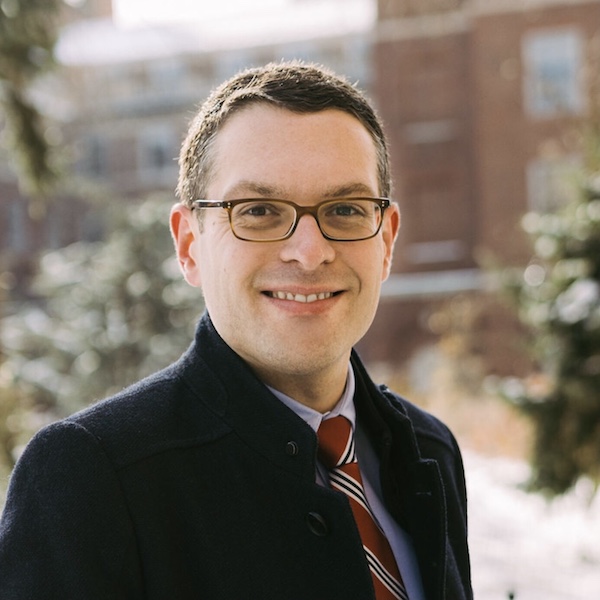
Daniel Nientiedt
Fellow
Daniel Nientiedt is a senior researcher at the Walter Eucken Institute in Freiburg, Germany. His areas of interest include public choice, constitutional economics, and the history of economic thought. Previously he was a postdoctoral research fellow at the Department of Economics at New York University, and a research fellow at the Center for the History of Political Economy at Duke University. He received his PhD in economics from the University of Freiburg in 2020. His work has been published by journals such as the Cambridge Journal of Economics, the European Journal of Law and Economics, History of Political Economy, the Journal of Economic Behavior and Organization, and Public Choice. He is one of the general editors of the Collected Works of Walter Eucken book series, published by Mohr Siebeck.

Liya Palagashvili
Fellow
Liya Palagashvili is a Fellow at New York University School of Law, an Assistant Professor of Economics at State University of New York-Purchase, and a Senior Fellow with the Fraser Institute. Liya earned her PhD in Economics from George Mason University in 2015, and while in graduate school she was also a Visiting PhD Scholar with the Department of Economics at New York University.
She has published over a dozen book chapters, policy papers, and journal articles in outlets such as Public Choice, History of Political Economy, University of Chicago Legal Forum, Journal of Institutional Economics, Supreme Court Economic Review, among many others. In addition to academic writing, Liya has published over two-dozen articles in media outlets such as the Wall Street Journal, Newsday, MSN, Forbes, U.S. News and World Report, and Philadelphia Inquirer.
She has presented her research both domestically and internationally on topics of law and economics, political economy, development economics, and entrepreneurship. She is currently conducting interviews with tech entrepreneurs and creating a unique survey to examine early tech start-ups and the regulatory framework in their industries, as well as, finishing up a book analyzing the policies in response to the 2008 financial crisis.
In 2016, Liya was named one of the Forbes ’30 under 30’ in Law & Policy.

Shruti Rajagopalan
Fellow
Shruti Rajagopalan is an Assistant Professor of Economics at State University of New York, Purchase College. She earned her Ph.D. in economics in 2013 from George Mason University and was most recently a Bradley Visiting Researcher in the Department of Economics at New York University. Shruti's broad area of interest is the economic analysis of comparative legal and political systems. Her research interests specifically include law and economics, public choice theory, and constitutional economics. Shruti is currently working on the economic analysis of amendments to the Indian Constitution. Her research has been published in peer-reviewed journals, law reviews, and books. She also enjoys writing in the popular press and has published opinion editorials on Indian political economy in The Wall Street Journal, Mint, The Hindu: Business Line, and The Indian Express.

Paola Suarez
Fellow
Paola Suarez has been a Fellow at the Classical Liberal Institute since 2016. In August 2019 she joined the Department of Economics and Legal Studies at the Stillman School of Business, Seton Hall University as Assistant Professor of Economics. Previously, she was a Visiting Assistant Professor of Economics at Purchase College, SUNY for 2018-2019. Paola earned her Ph.D. in Economics in 2018 from George Mason University and she was a visiting Ph.D. Fellow in the Department of Economics at New York University from 2016-2018. Her research is comprised of two strands: development economics, and applied microeconomics of gender. She has worked on investigating the causes of child-bride marriages in developing countries, with a particular focus on India, and on how policies aimed at raising female marriage age interact with child-bride marriage markets. She has also studied the role of formal and informal governance institutions, such as the Magna Carta, private communities, and superstition-based institutions.

Karen Bradshaw
Program Affiliate Scholar
Karen Bradshaw is a Professor of Law and Alan Matthenson Research Fellow at the Sandra Day O’Connor College of Law Arizona State University. Bradshaw is also a Senior Sustainability Scientist at the Global Institute of Sustainability, a Faculty Fellow at Oxford Centre for Animal Ethics, and a Faculty Affiliate Scholar at the New York University School of Law Classical Liberal Institute. Her work has been featured by major media outlets including Forbes, Fortune, The Atlantic, Bloomberg, National Public Radio, NPR's Planet Money, and The New York Times and has won numerous grants and awards. Professor Bradshaw is the author of several books, including the forthcoming Depolarized: How Nature Can Save America (Columbia University Press) and the internationally acclaimed book Wildlife as Property Owners: A New Conception of Animal Rights (University of Chicago Press). Her teaching and research span the subjects of Property, Contracts, Environmental Law, Natural Resources, and Biodiversity.
Professor Bradshaw earned a JD with honors from University of Chicago Law School, where she served on the law review. She holds an MBA from California State University, Chico for working executives and a BS in Business Administration from the University of California, Berkeley, where she was a Regent’s Scholar. She clerked for Judge E. Grady Jolly on the Fifth Circuit Court of Appeals and was the inaugural Koch-Searle Research Fellow at New York University School of Law. Raised in the rural communities of Klamath, CA (population 700) and McCloud, CA(population 1,200) Bradshaw now lives divides her time between Phoenix, Arizona and a working vegetable farm outside Portland, Oregon.

Billy Christmas
Program Affiliate Scholar
I am an Associate Professor at the John Chambers College of Business & Economics at West Virginia University. Previously I was a Senior Lecturer in Political Philosophy at King's College London, in the department of Political Economy where I was the PPE program director for four years. I am interested in the philosophical aspects of political and economic institutions, specifically the relationship between property rights and state authority. My work has appeared in journals such as Philosophy & Public Affairs, The Journal of Politics, Law and Philosophy, Economics and Philosophy, as well as the Stanford Encyclopedia of Philosophy. My book, Property & Justice: A Liberal Theory of Natural Rights, was published with Routledge in 2021.
Werner Vandenbruwaene
Program Affiliate Scholar
Werner Vandenbruwaene is a research fellow of the Research Foundation Flanders (FWO) at University of Antwerp (Belgium). As a visiting professor, he teaches introduction to political science (BA course) and comparative constitutional law (MA course). He defended his doctoral thesis on the enforcement of the principle of subsidiarity in the Fall of 2014. He was a visiting researcher at the UCLA School of Law during the Spring term 2014 and a visiting scholar at the Classical Liberal Institute at NYU Law School in 2017.
His main research interests are federalism, comparative constitutional law, fiscal and budgetary law, legislative studies and (constitutional) law & economics.
His publications include a special issue of the Maastricht Journal of European and Comparative Law on multi-level governance, a special issue of Legisprudence on the role of courts as regulatory watchdogs, edited volume on the role of constitutional courts in multi-level governance and an edited volume in Dutch on the sixth federalism reform in Belgium. Together with prof. R Houben, he co-edits a series published by Intersentia on Public and Private Financial Law, which includes two volumes on the EU Banking Union.
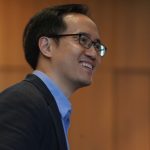
Yun-chien Chang
Program Affiliate Scholar
Prof. Yun-chien Chang is Jack G. Clarke Professor in East Asian Law at Cornell Law School and also directs the Clarke Program in East Asian Law & Culture. Before moving to Cornell, he was a Research Professor (now an Affiliated Research Fellow) at Institutum Iurisprudentiae, Academia Sinica, Taiwan and served as the Director of its Empirical Legal Studies Center. He has also served as a visiting professor at New York University, the University of Chicago, St. Gallen University, Hebrew University of Jerusalem, Haifa University, and Rotterdam Institute of Law and Economics. He has also conducted research at Free University of Berlin, University of Paris II, and University of Tokyo. Prof. Chang is a co-editor of Journal of Empirical Legal Studies and an Associate Reporter on American Law Institute’s Restatement of the Law Fourth, Property. Prof. Chang is President emeritus of Asian Law and Economics Association and a director of the Society for Empirical Legal Studies.
His current academic interests focus on economic, empirical and comparative analysis of private law (particularly property law), as well as empirical studies of the judicial system. Prof. Chang has authored and co-authored more than 160 journal articles and book chapters. His English articles have appeared in leading journals around the world, such as Journal of Legal Studies; Journal of Legal Analysis; Journal of Law and Economics; American Law and Economics Review; Journal of Law, Economics, and Organization; Journal of Empirical Legal Studies; Journal of Law and Empirical Analysis, International Review of Law and Economics; European Journal of Law and Economics; European Journal of Empirical Legal Studies; I˙Con; the University of Chicago Law Review; Southern California Law Review; Notre Dame Law Review; Iowa Law Review and Supreme Court Economic Review, among others.
His monograph Private Property and Takings Compensation: Theoretical Framework and Empirical Analysis (Edward Elgar, 2013) was a winner of the Scholarly Monograph Award in the Humanities and Social Sciences. His second monograph Property Law: Comparative, Empirical, and Economic Analyses was published in June 2023 and has been widely reviewed, including two book symposia. Prof. Chang is also a co-author of Property and Trust Law in Taiwan (Wolters Kluwer, 2017; 2nd edition, 2022). Moreover, Prof. Chang (co-)edited 4 other books: Empirical Legal Analysis: Assessing the Performance of Legal Institutions (Routledge, 2014), Law and Economics of Possession (Cambridge University Press, 2015), Private Law in China and Taiwan: Economic and Legal Analyses (Cambridge University Press, 2016), and Selection and Decision in Judicial Process Around the World: Empirical Inquires (Cambridge University Press, 2020).
He authored 9 books in Chinese published in China and Taiwan, Economic Analysis of Law: A Methodological Primer (Peking University Press, 2023), Compensation for Physical and Regulatory Takings of Land: Theory and Practice (Angle, 2013; 2nd edition, 2020), Economic Analysis of Property Law (Standard Chinese: Angle, 2015; 2nd edition, 2021; simplified Chinese: Peking University Press, 2019), Empirical Legal Studies: Principles, Methods, and Applications (New Sharing, 2019; 2nd edition, 2022), and Interpreting Private Law: A Social Scientific Approach (New Sharing, 2020), and also (co-)edited 3 books: An Empirical Legal Studies International Perspectives (Contemporary China Publishing House, 2024), An Empirical Legal Studies Reader: Domestic Perspectives (The Law Press, 2020), and Empirical Studies of the Judicial Systems 2011 (Institutum Iurisprudentiae, Academia Sinica; 2013).
Prof. Chang’s academic achievements have led to him being selected as an Academia Sinica Presidential Scholar in 2021–2022, and won him the 2019 ALSA Distinguished Article Award, Academia Sinica Career Development Award in 2017–2021, Outstanding Scholar Award in 2016, Academia Sinica Law Journal Award in 2016 and 2018, the Junior Research Investigators Award in 2015, the Best Poster Prize at 2011 CELS, and several research grants.
Prof. Chang sits on the editorial board of several leading journals, including Law and Social Inquiry, Journal of Law and Empirical Analysis, European Journal of Law and Economics, among others.
Prof. Chang received his J.S.D. and LL.M. degrees from New York University School of Law, where he was also a Lederman/Milbank Law and Economics Fellow and a Research Associate at the Furman Center for Real Estate and Urban Policy, NYU. Prof. Chang earned LL.B. and LL.M. degrees at National Taiwan University and passed the Taiwan bar. Prof. Chang has had working and consulting experience with prestigious law firms in Taiwan and has served as a legal assistant for the International Trade Commission.
Shitong Qiao
Program Affiliate Scholar
Shitong Qiao is assistant professor of law at the University of Hong Kong, where he teaches comparative property law, law of cities, law and development and Chinese law, and won the Faculty Research Award. He is also Global Associate Professor of Law at NYU School of Law (Fall 2017). Dr. Qiao holds degrees from Wuhan University (LL.B.), Peking University (LL.M.), and Yale University (LL.M., J.S.D.). His doctoral dissertation, “Chinese Small Property: The Co-Evolution of Law and Social Norms,” won the Judge Ralph K. Winter Prize (awarded annually to the best student paper written in law and economics at Yale Law School), and will be published by Cambridge University Press. Dr. Qiao’s current research focuses on property, social norms, and local government law, and is supported by Lincoln Institute of Land Policy and Hong Kong Research Grant Council. His publications appear or will appear in Southern California Law Review, Iowa Law Review, American Journal of Comparative Law, Columbia Human Rights Law Review, Cityscape, among others. Dr. Qiao passed the National Judicial Examination of China and is a member of the New York State Bar. He has provided expert opinions on the Chinese land regime to government agencies both inside and outside of China, including the Shenzhen city government and the Ontario Securities Commission.
Yehonatan Givati
Program Affiliate Scholar
Yehonatan Givati is the Sylvan M. Cohen professor at Hebrew University Law School, and the founding director of the Aumann-Fischer Center for Law, Economics, and Public Policy at Hebrew University. His academic work applies the tools of law and economics, both theoretical and empirical, to tax law, law enforcement, and administrative law and regulation, private law, and judicial behavior. He received a PhD from the Economics Department at Harvard University in 2013, and an SJD from Harvard Law School in 2011.
More information can be found at: https://sites.google.com/site/yehonatangivati/
Vanessa Casado Pérez
Program Affiliate Scholar
Vanessa Casado Pérez is an Associate Professor at Texas A&M School of Law and a Research Associate Professor at Texas A&M Department of Agricultural Economics. Her scholarship focuses on property and natural resources law. In several publications, she explores the role of property rights in the management of scarce natural resources. She has published in, among others, the Hastings Law Journal, Environmental Law Reporter, the NYU Environmental Law Journal, or the California Journal of Public Policy. She is affiliated with the Bill Lane Center for the American West at Stanford University. Prior to joining Texas A&M, Professor Casado Perez was Teaching Fellow of the LL.M. Program in Environmental Law & Policy and Lecturer in Law at Stanford Law School. She holds an LLB, a BA in Economics, and an LLM from Universitat Pompeu Fabra in Barcelona, where she is from. She holds an LLM from the University of Chicago Law School and a JSD from NYU School of Law. Professor Casado Perez worked in the Environmental division of the Procuraduria General de la Nacion in Colombia
Adi Leibovitch
Program Affiliate Scholar
Adi Leibovitch is an associate professor at the Hebrew University of Jerusalem Faculty of Law. She also co-chairs the Jerusalem Crime Group, an interdisciplinary forum for criminal justice policy analysis. Leibovitch's research focuses on the economic analysis of law, behavioral theory and empirical methods, as applied to the study of the institutional design of courts, litigation and legal decision-making, with a particular interest in the criminal justice system. Her work has been published in the Journal of Legal Studies and the Northwestern University Law Review.
She received her J.S.D and LL.M. from the University of Chicago Law School, where she was a John M. Olin Scholar at the Coase-Sandor Institute for Law and Economics, and a Russell Baker Scholar. She also earned her LL.B. and M.B.A, both magna cum laude, from the Hebrew University of Jerusalem, and her M.A. summa cum laude in public policy, mediation and conflict resolution from Tel-Aviv University. Before joining Hebrew University, Leibovitch was an academic fellow at Columbia Law School.
Malte Dold
Program Affiliate Scholar
Malte Dold is an Associate Professor in the Economics Department at Pomona College in California. During the2025–26 academic year, he is on leave for a research fellowship in the Department of Economics at New YorkUniversity. Malte received his PhD from the Albert-Ludwigs-University of Freiburg in 2018. He was an Adam SmithFellow at the Mercatus Center at George Mason University during the 2016–17 and 2017–18 academic years. Hisresearch focuses on normative and methodological questions in behavioral economics, as well as the history ofwelfare economics and ordoliberal economic thought. His articles have been published in prestigious journalsincluding Games and Economic Behavior, Journal of Economic Behavior and Organization, Journal of InstitutionalEconomics, Cambridge Journal of Economics, Journal of Economic Methodology, Public Choice, and BehavioralPublic Policy.
David A. Schwarz
Program Affiliate Scholar
David Schwarz is a partner with the law firm of Irell & Manella LLP, where he co-chairs the firm’s appellate practice group. He is recognized for his representation of clients in the area of constitutional litigation.
After clerking for Alex Kozinski, former chief judge of the U.S. Court of Appeals for the Ninth Circuit (1988-1989), Mr. Schwarz served as special assistant to Ambassador Morris B. Abram, the U.S. Permanent Representative to the European Office of the United Nations (1989-1991). In 2001, President George W. Bush appointed Mr. Schwarz as a public member delegate to the UN Human Rights Commission.
Mr. Schwarz served two terms (2007-2016) as a gubernatorial appointee to the Milton Marks "Little Hoover" Commission on California State Government Organization and Economy, an independent, bi-partisan government oversight board. Mr. Schwarz has written on a variety of public policy issues, ranging from public pension reform to public-private partnerships. His most recent article, "Compelled Consent: Wolff Packing and the Constitutionality of Compulsory Arbitration," will appear in the next issue of the NYU Journal of Law & Liberty.
He is a graduate of Columbia University and Duke University School of Law.

Carlo Ludovico Cordasco
Program Affiliate Scholar
Carlo Ludovico Cordasco is Assistant Professor at Alliance Manchester Business School, University of Manchester. His research interests are primarily in normative ethics, including business and AI ethics. His work has been published in journals such as the Journal of Business Ethics, Technovation, Philosophy and Public Issues. Currently, Carlo is working on the ethics of explain ability in human vs AI decision-making. His latest publication asks whether we should halt AI to protect meaningful work: https://link.springer.com/article/10.1007/s10551-025-06007-8

Mario Loyola
Program Affiliate Scholar
Mario Loyola is a Senior Fellow at the Competitive Enterprise Institute, where he writes on energy & environment, government & constitutional law, and competition & innovation. Before joining CEI, Loyola worked at the White House, as associate director for regulatory reform in the Council on Environmental Quality and as presidential speechwriter. Loyola has served at the Pentagon as a special assistant to the undersecretary of defense for policy, and on Capitol Hill as counsel to the U.S. Senate Republican Policy Committee, and as a senior advisor to Senator Ben Sasse of Nebraska.
Loyola has been a fellow at the Texas Public Policy Foundation, Wisconsin Institute for Law and Liberty, and the Foundation for Defense of Democracies. He has published extensively on a wide range of foreign and domestic policy issues in National Review, The Atlantic, the Wall Street Journal, and elsewhere. He has taught at University of Texas School of Law and at the Antonin Scalia School of Law of George Mason University.
He received a B.A. in European History from the University of Wisconsin and a J.D. from Washington University School of Law. He is a member of the New York State bar and of the Supreme Court bar.

Max Raskin
Program Affiliate Scholar
Max Raskin is an adjunct professor of law at New York University. He previously worked at the U.S. Treasury Department, serving as chief speechwriter to the Secretary and advisor to the General Counsel. Prior to that, Max was an associate at Morgan Stanley in the firm’s Investment Management division. He began his career at Bloomberg News and Businessweek covering finance and technology. He served as a law clerk for Judge Loretta Preska, U.S. District Court for the Southern District of New York. Max received his bachelor’s and law degrees from New York University.

Nick Cowen
Program Affiliate Scholar
Nick Cowen is a lecturer in Criminology at the University of Lincoln. He wrote his doctoral dissertation at King's College London on the political economy of distributive justice. He has a B.A. in Philosophy from University College London and an M.Phil. in Political Theory from the University of Oxford. Cowen was a Fellow at the Classical Liberal Institute from 2016 to 2019 and continues as a Program Affiliate Scholar. He has published his research, among other places, in the American Journal of Political Science, The British Journal of Criminology, and Critical Review. His research explores the epistemic challenges of maintaining a stable society with minimal reliance on the exercise of power.

Aaron Simowitz
Program Affiliate Scholar
Aaron Simowitz joined the CLI as a fellow in 2014 and became a program affiliate scholar in 2016. Aaron is an assistant professor at Willamette University College of Law (WUCL), where he teaches international business transactions, debtor and creditor law, negotiation, civil procedure, and seminars on business negotiations and on resolving business disputes. His research focuses on cross-border business transactions, litigation, and arbitration.
Aaron has also been a research fellow at the Center for Transnational Litigation, Arbitration, and Commercial Law at NYU School of Law, where he taught International Litigation & Arbitration with Professor Linda Silberman, Forum Shopping in International Commercial Law with Professor Franco Ferrari, and the first-year Lawyering course. He has also taught the International Business Transactions and Transnational Litigation courses at Columbia Law School.
Aaron is the chair-elect of the AALS Section on Conflict of Laws and the co-director of the Business Lawyering Institute (BLI) at Willamette University. Aaron co-convened the CLI-WUCL symposium on “The Extraterritorial State” and the inaugural BLI Symposium on “Teaching Better Business Lawyering.” He received the Young Scholar’s Award from the American Society of International Law’s Private International Law Interest Group for his work on judgment and award enforcement against intangible assets. He practiced at the New York office of Gibson, Dunn & Crutcher, and clerked for Judge D. Brooks Smith of the U.S. Court of Appeals for the Third Circuit. Aaron graduated from the University of Chicago Law School, where he received an Olin Student Fellowship, a Bradley Student Fellowship, and the Bustin Award for the paper making the most valuable contribution to the improvement of government.

Hyunseop Kim
Visiting Fellow, Fall 2018 and Spring 2019
Hyunseop Kim is a Professor in the Department of Philosophy at Seoul National University, where he teaches ethics and serves as an active member in running its Philosophy-Politics-Economics program. He received a Ph.D. in philosophy from New York University in 2012 and was a Postdoctoral Scholar in the Center for Ethics in Society at Stanford University in 2012-14. He served as a Judge at the Seoul Eastern District Court and as a Judge Advocate in the Republic of Korea Army in 2003-6. His primary areas of research are moral, political and legal philosophy. His recent publications appeared in, among others, Philosophy, Economics and Philosophy, Oxford Studies in Philosophy of Mind, Political Theory, and International Theory. He is working on, among other things, property-owning democracy, democratic backsliding, and the value of economic growth.

Stefanie Jung
Visiting Fellow, Fall 2018
Stefanie Jung is a Visiting Fellow at the Classical Liberal Institute during September and October 2017 and was also a visitor during Spring 2014, Fall 2015, and Fall 2016. She is Juniorprofessor (associate professor) for civil law and company law at the University of Siegen (Germany), where she teaches in the Bachelor’s and Master’s Program on German and European Business Law. She is also a visiting lecturer at Vienna University of Economics and Business since 2015 (teaching contract negotiations). She has published extensively on European corporate law, corporate governance, contract negotiations as well as on business networks and legal methodology.

